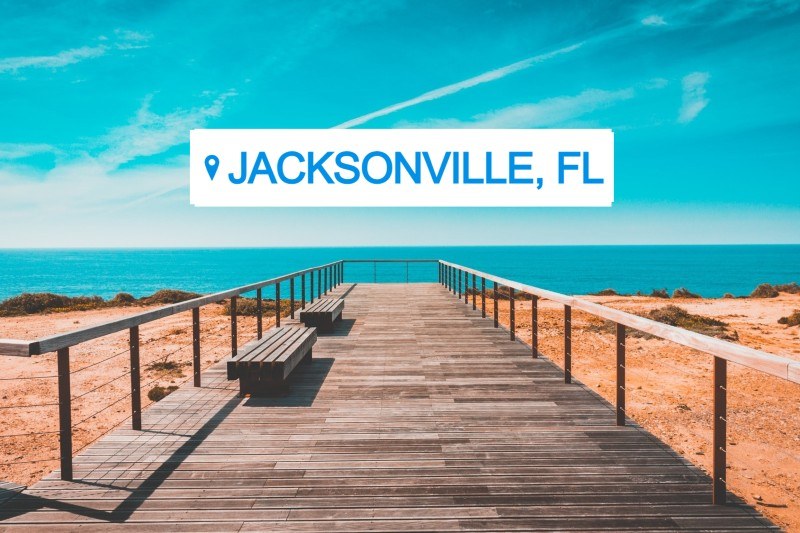An estimated 6 million homes will be bought in the U.S. in 2022 - that’s a lot of people buying homes, and inevitably they have questions about the process.
If you’re a first time home buyer, it’s difficult to know exactly what you don’t know about the home buying process. If you’re ready to buy a home, here are 12 good questions you should be asking your Realtor - at each stage of the buying process.
Questions to ask a Realtor when interviewing them
Don’t just go with the first Realtor suggested to you by Zillow! Here are a few questions you can ask to make sure your agent is ready to handle the job.
What’s the current local market look like for buyers?
Prioritize finding a Realtor with local expertise. Marcie Cramsey, a Virginia-based Realtor, says agents should set homebuyers' expectations so there aren’t surprises when they go to market.
“Do they understand the market, even in the current environment; are they confident in what’s happening, and can they advise you as to the reality of being able to buy a home - and what that time frame looks like?” She asks.
How many clients are you currently helping?
It’s good to work with someone who’s in demand, but if your agent is juggling too many clients, you might be in trouble. Quick communication is essential for successful real estate transactions, and someone who is handling 10 clients at once is going to have to make a judgment call sometimes as to which client to prioritize - and you might not be the priority.
How do you help buyers stand out?
Agents don’t just show you homes: they help you navigate the difficult process of making an offer on a home. This involves drawing on their experience in the field to craft a compelling offer. Your agent should be able to explain how they could help you make your best offer, as well as potential negotiation tactics they can employ to help you stand out from the crowd.
What’s my role in the process?
Marcie explains that it's essential that buyers understand from the get-go what their role is, and what each person involved in the process is responsible for.
"It’s a partnership and both the agent and the buyer have responsibilities - as well as the lender," she notes. "There’s a lot of people involved and it’s important for them to understand who’s responsible for what. Including themselves."
She says that one important responsibility buyers have is quick communication. "Don’t wait days to respond to questions, because that puts a stop in the process and delays your ability to close in time," she explains.
Questions to ask a Realtor before buying a house
Once you’ve signed the buyer broker agreement, it’s time to start looking at homes and asking questions. Be thorough so that you know exactly what you’re getting into.
Is this home fairly priced? Is the asking price close to the market value?
Zillow’s Zestimate is not an appraisal, and the median error rate for on-market homes is 1.9% - for a $500,000 home, that means the Zestimate is typically off by $10,000. In other words, you can’t use online estimates as reliable indexes of what a property is worth. A Realtor can give you a more accurate estimate for the home’s worth based on recent comps.
Knowing whether a home is close to its fair market value is important, especially if you’re going to be applying for a home loan. The lender will require an appraisal of the home - and if the appraisal comes in lower than the purchase price, you’ll be expected to make up the difference, negotiate the price down, or back out of the sale.
Is there anything concerning about this area that I should know?
Your Realtor often knows more about the neighborhood than what will appear in any property description on Zillow. It might be that the house is located on a busy street that becomes very noisy on weekends when the bars let out - something that can be difficult to observe on a weekday afternoon when you go to see the house. Or the area might be prone to flooding, which isn’t always obvious in the drier months but can create a huge headache come springtime.
“They should be asking what kind of development is being done in the area, and how populated is it? Some people want to live out where there’s not a lot of people, some people love the hustle and bustle of the city. I also would refer them to other websites like areavibes.com because it gives them all kinds of information,” says Marcie.
Keep in mind, Realtors are prohibited from commenting on topics like safety and whether an area is “family friendly” because of fair housing laws, so it’s important to follow their recommendations on where you can find additional information.
“I think it’s also a good idea to ask about conveniences… what things are close by? Where are the hospitals, if you’re an older client?” she notes.
Will anything impact the future value of this home?
Did you know that a Whole Foods supermarket opening near your home can lead to a 17.5% home-price premium? That’s according to a study by real estate consultancy Johnson Economics - and seems to be generally true about both specialty grocery stores and coffee shops. Your Realtor is likely to have an ear to the ground regarding local development plans, and can advise you as to how future projects are likely to impact your home’s price appreciation.
Would you buy this house?
Of course, everyone has different wants and needs when it comes to a home. But asking your agent whether they would buy your home can help you look at this decision from a more objective perspective. If you fall in love with a home’s built-in shelving and granite countertops, it can be easy to overlook the fact that it’s an extra fifteen-minute commute for your workday - even though this can impact your qualify of life in the long term.
If your Realtor wouldn’t buy the home because they’re not sure about the quality, the location, or other really important values, think twice before putting in an offer.
How much will I pay per month?
A Realtor who is looking out for your best interests will make sure you know ahead of time what your estimated monthly costs are. Two same-priced homes located in different neighborhoods can have vastly different monthly costs based on everything from property taxes to HOA fees.
How old is the roofing, HVAC, etc?
A disclosure document will reveal any known major defects with the home, and an inspection will further uncover any issues the homeowners may not have been aware of. However, as a homebuyer you typically only gain access to these documents once you put in an offer - not before. Your Realtor, though, can communicate with the listing agent to find out details like how old the roofing is, or when the HVAC system was last replaced - since this can impact your future expenses.
"If they’re buying a house that needs a new roof, they need to have an idea of what that’s going to cost so that they can decide if they want to move forward or not. That type of thing is important to answer before they even make an offer," says Marcie.
Questions to ask a Realtor before signing an offer
What are the terms of my contract/what is binding?
When you make an offer on a house, you’re agreeing to certain terms with the seller (if they accept). Some buyers might assume that if something serious comes up during the inspection, they can always leave the deal. However, this requires a specific inspection contingency.
It’s also important to understand which costs are set - even if the contract falls through due to the inspection contingency, you’re still on the hook for the cost of the inspection (since it’s a service provided by a third party vendor).
“I walk my clients through every single line item and explain each part so that they understand what they’re signing. They need to understand the consequences of breaking that agreement and what the cost will be to them. It’s a very serious agreement and could have legal consequences if they don’t stick to it," explains Marcie.
What’s included with the sale?
You can usually assume that major appliances, cabinetry, etc. come with the home. It can be a good idea to check through - and if the qualify of the appliances matter, have it in writing that you’ll be receiving that $4,000 French-door fridge, or you might move in only to discover that the former owners have taken the old fridge with them and left you with a $300 basic fridge.
Ready to start asking the important questions?
Talk to a Realtor today
For further reading


